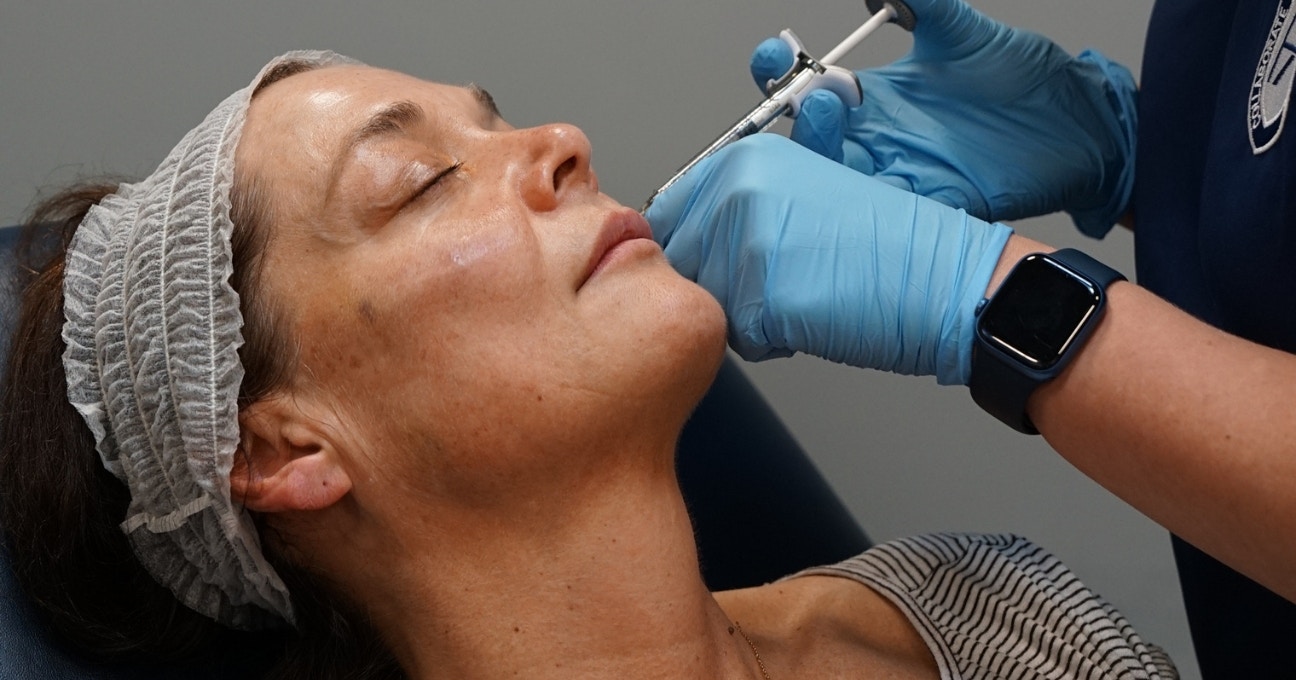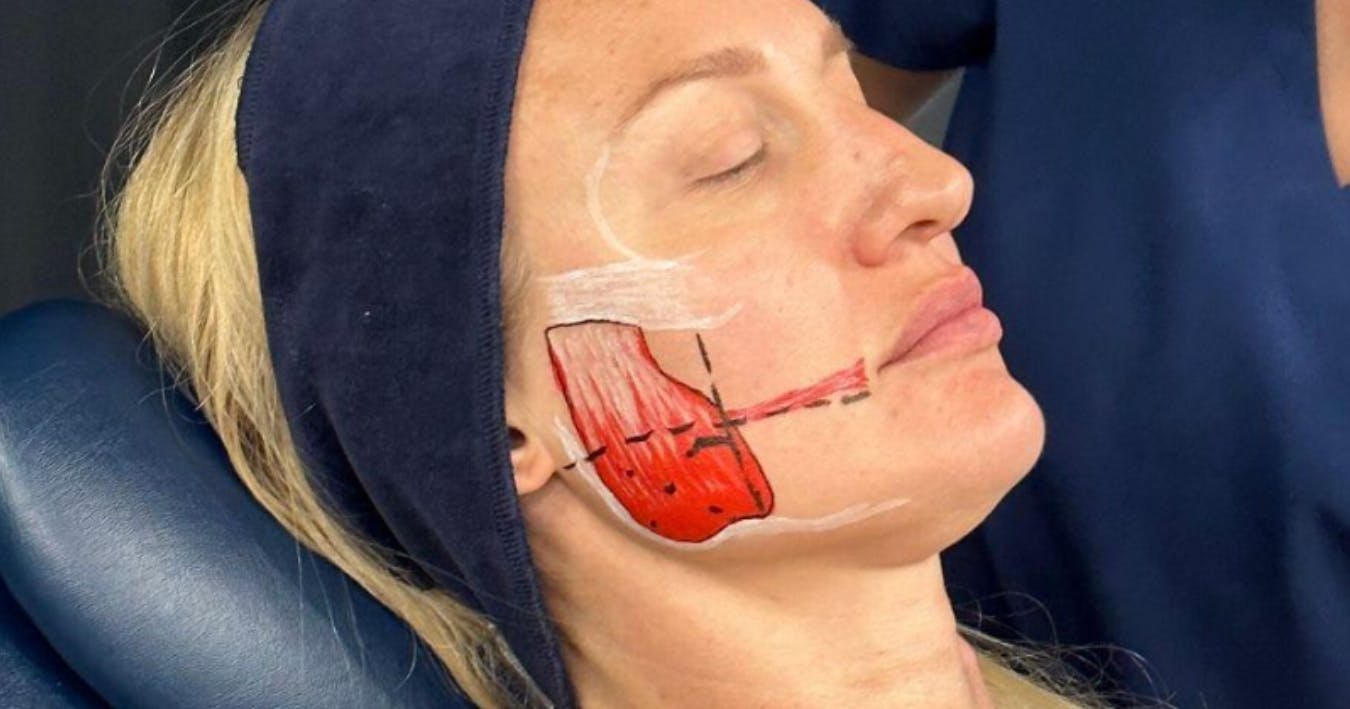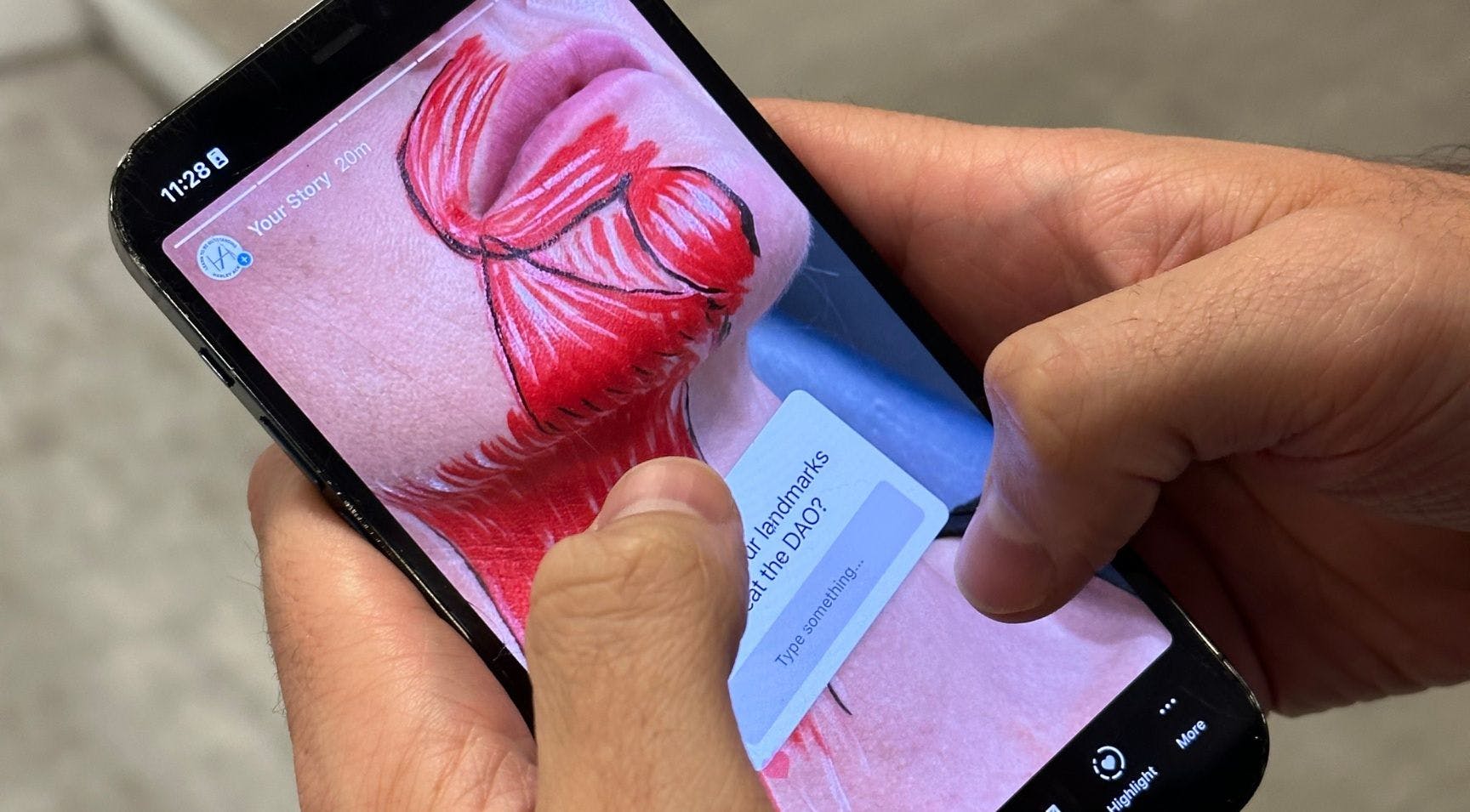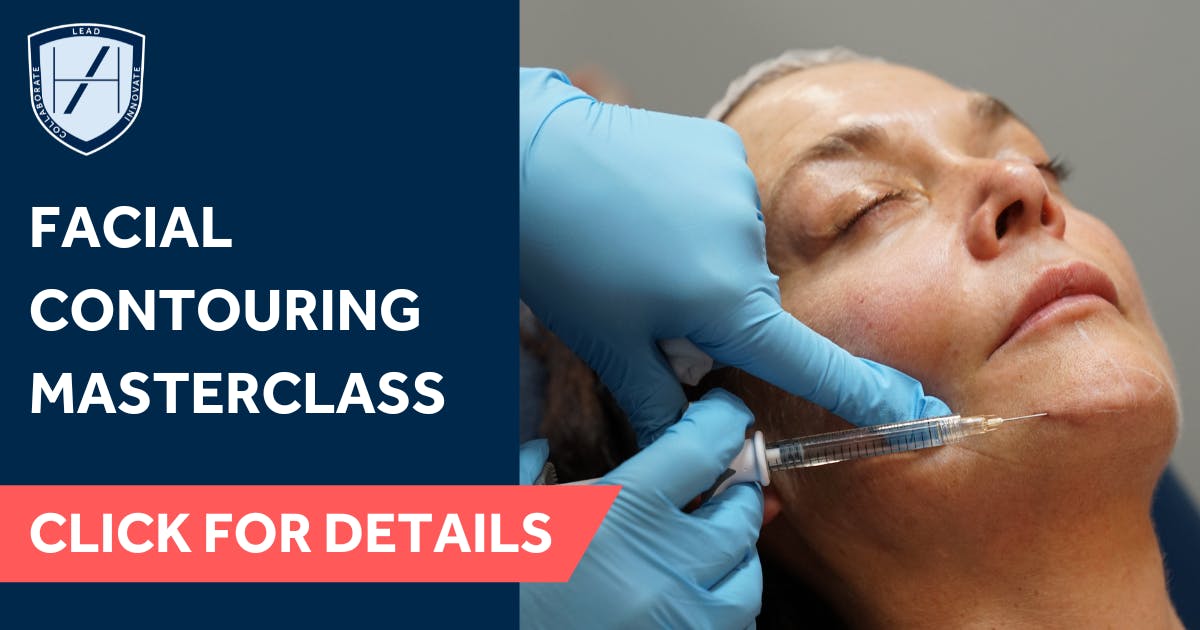Cosmetic Dentists Must Not Use ‘Aesthetic Doctor’ Title

The General Dental Council (GDC) is cracking down on cosmetic dentists using the title ‘Aesthetic Doctor’. They are also prohibited from calling themselves an ‘aesthetics specialist’ or ‘cosmetic doctor’.
This guidance has ramifications for all dental professionals working in aesthetic medicine. Here we explore what titles can be used, and which can’t for dentists and dental surgeons practising aesthetics.
We also consider the ramifications of the GDC restrictions when it comes to aesthetics marketing for dentists and dental professionals. You’ll find a wealth of content ideas for how to promote your aesthetics services as a dentist, keeping within this framework.

Dental professionals must not use ‘specialist titles’
The GDC is sending out a reminder specifically targeting cosmetic dentists in the aesthetic medicine space. As the UK regulator for dental professionals, it’s setting out the rules regarding what dental professionals can use, in terms of their professional title.
This is part of its wider requirements around the use of ‘specialist’ titles. For dentists and dental surgeons, ‘specialist’ is a protected term, in the same way the title ‘doctor’ or now ‘nurse’ is.
Dentists may only call themselves a specialist if they’re listed on one of the GDC's official specialist registers, have completed an approved training pathway and meet specific criteria.
The GDC does not have a specialist register for aesthetic medicine providers. As such, there is no opportunity for dental professionals to apply to be able to use ‘specialist’ titles or terminology.
What the GDC says
Setting out its guidance on this, the GDC website states:
‘If you are a dentist and are on a GDC specialist list, you can use the title “Specialist” or describe yourself as a “specialist in….”
‘If you are a dentist and you are not on a GDC specialist list, you must not use titles which may imply specialist status such as Orthodontist, Periodontist, Endodontist etc.
‘There are no specialist lists for dental care professionals. If you are a dental care professional, you must ensure that you do not mislead patients by using titles which could imply specialist status, such as “Smile specialist” or “Denture specialist”.
‘If you are not on a specialist list, you must not describe yourself as “specialising in…” a particular form of treatment, but may use the terms “special interest in..”, “experienced in..” or “practice limited to…”.’
Cosmetic dentists cannot call themselves ‘Aesthetics Doctor’ or ‘aesthetics specialist’
The following lists detail what professional titles dental professionals are eligible to use, with regard to their aesthetic work, and what they’re not. They are still allowed to use the courtesy title of ‘Dr’ but only in the specific ways outlined below.
These rules are not new and came into effect in 2013. However, we’ve provided specific examples below relating to aesthetic medicine which were not specifically provided in the GDC advertising guidance, to illustrate their use.
Permitted:
- Dr [name], BDS PgDipAes - Dentist with a special interest in aesthetics
- Dr [name], BDS Dental Surgeon with a special interest in aesthetics
- Dental surgeon/dentist with a special interest in aesthetic medicine/aesthetics
- Dentist/dental surgeon with a special interest in aesthetics and cosmetic dermatology
- Dental surgeon/dentist experienced in aesthetic medicine/aesthetics
- Dentist/dental surgeon experienced in aesthetics and cosmetic dermatology
- Dental surgeon/dentist experienced in injectables/cosmetic injectables.
Not permitted:
- Dr [name] - aesthetic medicine / cosmetic medicine / aesthetics
- Dr [name] - aesthetic doctor / cosmetic doctor
- Cosmetic doctor / aesthetic doctor
- Aesthetic medicine specialist, aesthetics specialist, injectables specialist or any similar title referring to medical aesthetics or specific treatments
- Smile specialist
- Specialising in aesthetic medicine/aesthetics/injectables, etc.
It also states that ‘Patients may think that letters after your name indicate that you have gained further qualifications. You must not list memberships or fellowships of professional associations, societies or honorary degrees in an abbreviated form because it may mislead patients.’
This does not apply to the PGDip post-nominal awarded to graduates of our Level 7 Diploma in Cosmetic Injectables courses. The reason being, this is not a membership, fellowship of a professional association, society or an honorary degree. It’s an Ofqual-regulated postgraduate qualification in botox and dermal fillers, accredited by VTCT Skills.
Scrutiny in this area is expected to ramp up, following the organisation’s April 2025 appointment of Executive Director of Legal and Governance, Katie Spears.
Why does the GDC have these rules in place?
The simple explanation for why there are such strict guidelines as to what dental professionals can call themselves boils down to ethics.
The GDC is concerned with ensuring patients can easily understand what a dental professional is qualified to do. Removing any confusion stemming from incorrect, or what may be interpreted as exaggerated experience or qualifications, is at the heart of these requirements.
What the council is keen to avoid is situations where dental professionals using a title such as ‘aesthetics specialist’ may:
- Imply an official status or endorsement by the GDC that doesn’t exist
- Lead patients to overestimate a practitioner's qualification or assume a level of regulation that isn’t in place
- Blur the distinction between cosmetic procedures and medically necessary treatments, which can erode trust in regulated healthcare professionals.
A good example of this is use of the title ‘cosmetic dermatologist’. Whilst you may have undertaken a Cosmetic Dermatology course, the term ‘cosmetic dermatologist’ is misleading. For patients, it’s easily confused with being a ‘dermatologist’, which is a separate role that demands a far higher level of study, qualification and expertise. This is why we always advise our graduates to not call themselves ‘cosmetic dermatologists’.
In short, the GDC’s priority is to ensure that titles reflect genuine, verifiable qualifications rather than marketing terminology.
This all plays into the importance of how you present yourself being accurate, ethical and responsible. For example, did you know that, whilst many injectors hold themselves up as ‘aesthetics experts’, this is actually quantifiable? We were involved in research led by Professor Sebastian Cotofana, published in the esteemed Aesthetic Surgery Journal, establishing the levels at which practitioners could be defined as ‘novice’, ‘intermediate’ and ‘expert’. Take a look to see where you currently fit into the criteria!
How can dentists highlight their aesthetic services to patients?
Dentists working in aesthetics are already at an advantage when it comes to marketing their services. Whereas doctors and nurses aren’t generally able to offer their regular patients these treatments, they are far easier to integrate into dental practices.
By alerting your existing patients to your additional cosmetic treatments, you’re building awareness. This can even just be through word-of-mouth when seeing them for their check-ups. Many aesthetic practitioners are incredibly successful, having built thriving clinics on word-of-mouth referrals alone. Underestimate this marketing avenue at your peril!
We do live in a digital world, however, so it’s only natural that you’ll want to advertise your services online. Whether it’s through your website, social media or messaging services such as WhatsApp, these restrictions can be managed pretty easily.
Remember why dentists can excel in aesthetic medicine
We spoke to Harley Academy’s Content Director, Sarah McGiven, for some ideas dentists can use to promote their aesthetics services, ethically.
“Consider the many advantages your dental background offers you when it comes to aesthetic medicine,” Sarah suggests. “Make a list of what they are and talk about them! If your patients are considering any form of cosmetic treatment, they’ll be interested in hearing more.”
She highlights the following as just some of the key ‘unique selling points’ (USPs) for dentists in aesthetics:
- Extensive knowledge of facial anatomy
- Advanced injection skills and manual dexterity from daily experience with local anaesthesia and surgical procedures within a confined space
- Ability to fully assess facial proportions, including how cosmetic treatments can enhance or disrupt balance between the lips, smile, teeth and lower face
- Experience of preventing and managing complications
- Existing patient relationships where trust has already been established
- Regulated and accountable to your medical board, the GDC.
“When making marketing content, whether it’s for social media or your website, the goal is to connect,” shares Sarah. “You’re looking to build a relationship with this patient - or potential patient. And the best way to do that is to be authentic. You build trust by sharing your expertise, demonstrating your deep understanding of a subject, and by letting your audience get to know you - even just a little.”
She adds, “This is one of the reasons video content does so well on social media platforms. It allows us to feel like we’re really getting to know someone and form parasocial bonds. But if you’re not comfortable with being on camera, don’t worry. Written content in the form of website articles, blogs or even static social media posts, can be just as compelling.”

Embrace the art of professional storytelling
“Storytelling is one of the best aesthetics marketing tools you have at your disposal,” says Sarah. “All you have to do is be open to sharing your insights, especially around how you personally connect to your profession. People buy outcomes, rather than treatments, but what you want to tap into is why they should come to you for them.
“Relaying your stories in this way - whether written, on podcasts or on video - allows your audience to process information, build connection, and assign meaning. It also encourages them to be more inquisitive and picture themselves in that situation.
“A good story shows vulnerability, motivation, and intention. It makes you feel accessible and relatable. We trust people we understand, and trust is the key to long-lasting patient relationships.
“Just as you may not want to film TikTok videos, there will be patients out there looking for practitioners who aren’t making them. There’s a shoe for every foot, as the saying goes, so don’t be shy about leaning in to whatever method works well for you, and start telling your story.”
Aesthetics marketing for dentists: the guidelines to follow
Following on from these professional attributes and storytelling advice, Sarah notes specific considerations for dental professionals’ aesthetics marketing content.
“I’d encourage all dentists and dental surgeons working in aesthetics, develop your own approach to how you market that side of your business. However, you must make sure it aligns with both the GDC advertising guidelines, and the CAP guidelines, to ensure full compliance.”
We’ve linked to the GDC advertising guidelines already in this article. You can find the CAP Bitesize videos, outlining the advertising requirements in relation to non-surgical cosmetic treatments, in our article, How Can You Advertise Toxin Treatments Legally In the UK?
Sarah adds, “By simply talking about yourself, the facts and advising on what’s possible, you don’t need to go into detail on treatments, unless you want to and it’s appropriate. For example, talking about how you developed your ‘special interest in aesthetics’.
“Delving into the commonality between dentistry and aesthetics, is another rich content stream” she recommends, “What content will appeal to both audiences? An obvious choice is anatomy. This is not only interesting to patients, but demonstrates your expertise in this area.
“When you consider the possibilities - even just discussing the effects of ageing alone - this topic has so much scope. You could make it into a whole series that clearly demonstrates your knowledge and passion, within the regulatory framework. So, as long as you don’t refer to yourself as an ‘aesthetic doctor’ or talk about botulinum toxins or other prescription medications, you should find yourself on the right side of the guidelines.”
All information correct at time of publication
Download our full prospectus
Browse all our injectables, dermal fillers and cosmetic dermatology courses in one document
By submitting this form, you agree to receive marketing about our products, events, promotions and exclusive content. Consent is not a condition of purchase, and no purchase is necessary. Message frequency varies. View our Privacy Policy and Terms & Conditions
Attend our FREE open evening
If you're not sure which course is right for you, let us help
Join us online or in-person at our free open evening to learn more
Our Partners













STAY INFORMED
Sign up to receive industry news, careers advice, special offers and information on Harley Academy courses and services


